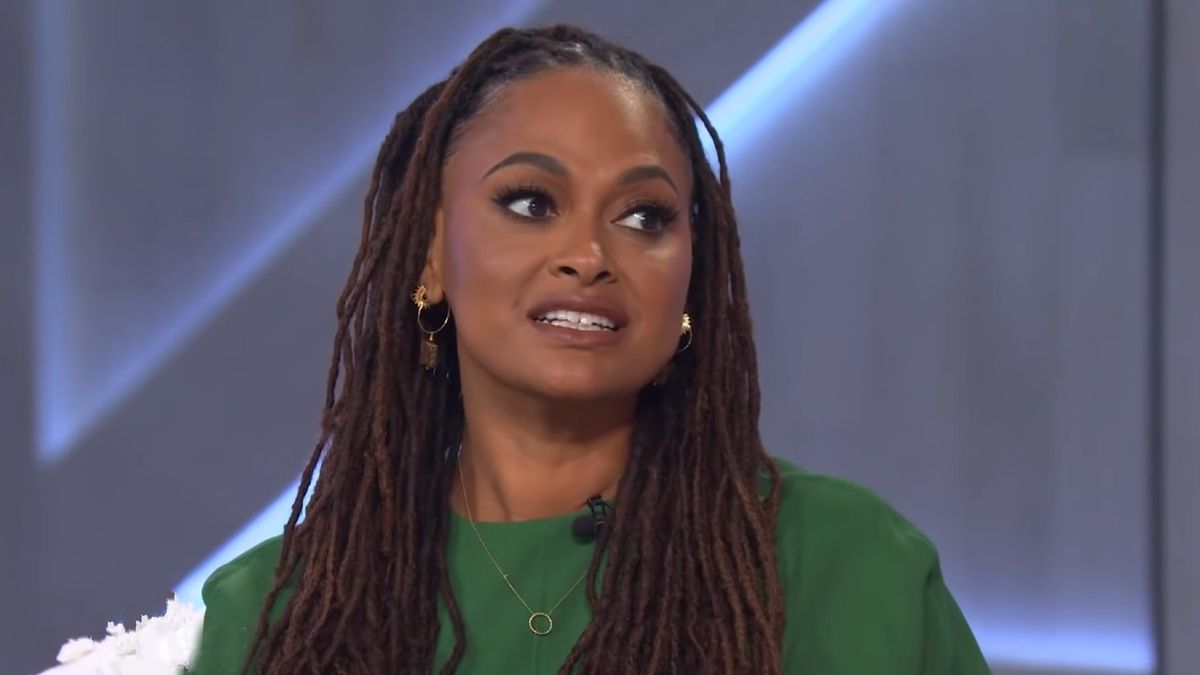Black filmmakers have experienced great success in Hollywood that’s somewhat reminiscent of the era of prominence that occurred during the 1990s and early 2000s. However, success hasn’t erased any of the adversity many African Americans in the industry have faced since Tinseltown’s early days and continue to go through today. Film and TV director Ava DuVernay has experienced both sides throughout her storied career. After premiering her latest film, Origin, at the Venice Film Festival, DuVernay explained why so few Black filmmakers present their movies at famous film festivals.
Ava DuVernay made history at the Venice Film Festival by becoming the first Black woman to compete. While it was a historic moment to celebrate, she used the moment to spotlight the lack of fellow African American directors competing in major international film fests. The Selma director opened up about how Hollywood executives and producers discourage some of her peers from entering competitions. She said during the film’s Venice press conference (via The Guardian):
For Black film-makers, we’re told that people who love films in other parts of the world don’t care about our stories and don’t care about our films. This is something that we are often told: you cannot play international film festivals, no one will come.
Hollywood is changing for the better, but there are still some negative elements entrenched in the film industry. Black filmmakers, actors, audiences, etc. have been underestimated for decades when it comes international appeal. In recent years, filmmakers like Ava DuVernay, Ryan Coogler and Jordan Peele kicked off their careers and brokered huge deals by competing at famous events, like the Toronto International Film Festival and Cannes. DuVernay was only the second Black female director to premiere a film in Venice after Regina King debuted her Oscar-nominated feature debut, One Night in Miami, in 2020. So her words do indeed have merit.
The A Wrinkle in Time director was certainly open about how she views the relationship between African American creatives and international film festivals. She also went into greater detail about what she’s been told by Hollywood decision-makers about her hypothetical reception from famous cinema-centric events, stating:
People will not come to the press conferences, people won’t come to the [press and industry] screenings. They will not be interested in selling tickets. You might not even get into this festival, don’t apply. I can’t tell you how many times I’ve been told, ’Don’t apply to Venice, you won’t get in. It won’t happen.
Continued success doesn’t make Black directors immune from the racism that’s still present within the entertainment business. According to the publication, a 2021 study revealed films by Black filmmakers only make up one percent of competition entries at film fests.
Ava DuVernay’s account sadly isn’t surprising, as multiple creatives within the Black community have spilled about Ho downplaying their broad appeal. Many have complained for years about bigwigs downplaying the commercial appeal that their stories have with international audiences. Directors aren’t the only ones facing discrimination either. Several actors have opened up about dealing with beauty standards, fighting for equal pay and fighting against exclusion from Hollywood’s A-list. Ultimately, he success of films like Black Panther (as well as its sequel) and Get Out has proven helped prove international fans love Black-oriented content just like U.S. audiences.
On that note, Ava DuVernay’s Origin received a standing ovation and a positive response at the Venice Film Festival. The book-to-screen adaptation garnered Oscar buzz after playing at TIFF, and it’ll premiere to wider audiences later this year. In the meantime, keep up with our schedule of 2023 new movie releases so you’ll know when you can see other Academy Award contenders.
